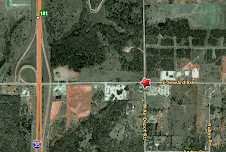Meriwether Jeff Thompson was born at Harpers Ferry, Virginia, now West Virginia. Following his education, he found employment as a store clerk throughout Virginia and Pennsylvania, then moved to Liberty, MO in 1847. The following year, he moved to St. Joseph, MO. Starting as a store clerk, he took up surveying and served as the city engineer. He later supervised the construction of the western branch of the Hannibal & St. Joseph Railroad. He married Emma Hayes in 1848.
Thompson was a colonel in the Missouri State Militia at the outbreak of the Civil War. In late July 1861, he was appointed brigadier general of the First Division, Missouri State Guard. He commanded the First Military District of Missouri, which covered the swampy southeastern quarter of the state from St. Louis to the Mississippi River. Thompson's battalion soon became known as the "Swamp Rats" and he was referred to as the "Swamp Fox of the Confederacy." Although Thompson frequently petitioned for the Confederate rank of brigadier general it was never granted. His brigadier rank came from his Missouri State Guard service.
When Union General John C. Fremont issued an *emancipation proclamation to free the slaves in Missouri, Thompson declared a counter-proclamation and his force of 3,000 soldiers began raiding Union positions near the border in October. On October 15, 1861, Thompson led a cavalry attack on the Iron Mountain Railroad bridge over the Big River near Blackwell, southwest of St Louis. After successfully burning the bridge, Thompson retreated to join his infantry in Fredericktown, south of St Louis. Soon afterwards, he was defeated at the Battle of Fredericktown and withdrew, leaving southeastern Missouri in Union control.
* The Frémont Emancipation was part of a military proclamation issued by Major General John C. Frémont on August 30, 1861 in St. Louis. The proclamation placed the state of Missouri under martial law and decreed that all property of those bearing arms in rebellion would be confiscated, including slaves, and that confiscated slaves would subsequently be declared free. It also imposed capital punishment for those in rebellion against the federal government.
In 1862, Thompson was reassigned to the Trans-Mississippi region, where, accompanying General John Marmaduke, he engaged battles in Arkansas and accompanied Marmaduke on his raid into Missouri.
Thompson was captured in August in Arkansas, and spent time in St. Louis' Gratiot Street prison, as well as at the Fort Delaware and Johnson's Island prisoner-of-war camps. "Poor old Jeff, how my heart went out to him; he a prisoner and his devoted wife in a madhouse". ~~ My Life and My Lectures by Major Lamar Fontaine, a prisoner with Thompson in Fort Delaware.
In 1864 he was exchanged for a Union general. Later that year, Thompson participated in Major General Sterling Price's Missouri expedition, taking command of J O Shelby's famed "Iron Brigade" when Shelby became division commander.
After the war, he returned to civil engineering and went to New Orleans. He designed a program for improving the Louisiana swamps, a job that eventually destroyed his health. He returned to St. Joseph, Missouri in 1876 where he died of tuberculosis, September 5, 1876 at the age of 50.
Subscribe to:
Post Comments (Atom)
















No comments:
Post a Comment